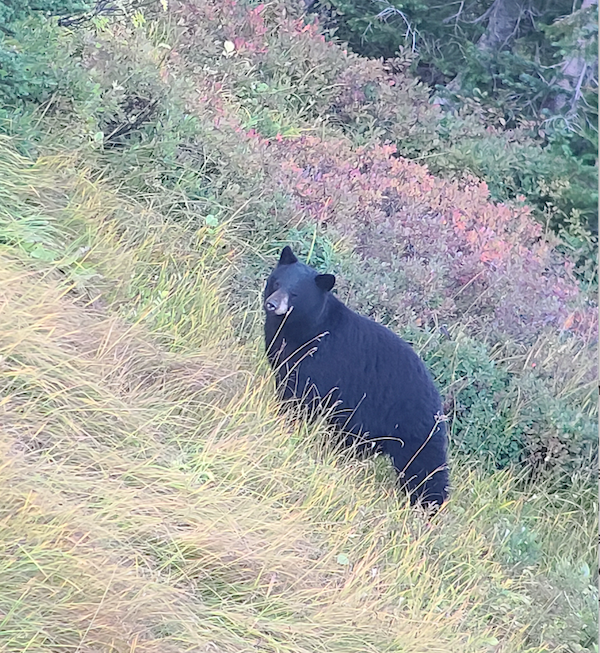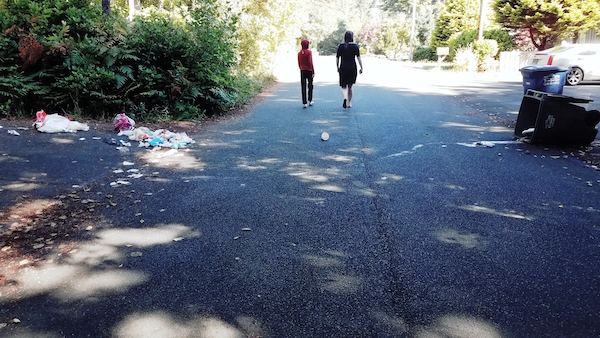
Bear Management A Hot Topic On West, East Coasts
It’s an active time for black bear policies on both sides of the United States.
As Washington’s Fish and Wildlife Commission takes up the future of limited-entry spring hunts this Friday, the governor of New Jersey has lifted his suspension of the state’s late fall season, saying “the data demands that we act now to prevent tragic bear-human interactions.”

The U-turn by Gov. Phillip Murphy – a Democrat whose 2017 campaign included a pledge to end bear hunting in favor of nonlethal measures – has animal-rights groups vowing to sue in court to stop the season that is expected to begin December 5 and run for at least six days alongside the firearms deer season, and possibly four more at midmonth, depending on how many are harvested.
Bear advocates are claiming it’s “a recreational trophy hunt,” per the New York Times today, but indications are that the governor is actually focused on restoring public safety as bruin conflict prevention efforts appears to be insufficient to deal with the scope of the ursine issue.
“Since the outset of my Administration, I have promised to ground every difficult decision on the latest science and evidence in order to protect our communities,” said Murphy in a Nov. 10 press release. “From the data we have analyzed to the stories we have heard from families across the state, it is clear that New Jersey’s black bear population is growing significantly, and nonlethal bear management strategies alone are not enough to mitigate this trend. Every New Jerseyan deserves to live in communities in which their children, families, and property are protected from harm, and while I committed to ending the bear hunt, the data demands that we act now to prevent tragic bear-human interactions. We must responsibly adapt to the population with carefully regulated and strict bear population management strategies to ensure our communities and families are protected from the growing black bear population.”
The plan had originally been to suspend the hunt “to provide an opportunity to evaluate the feasibility of exclusively using non-lethal measures to maintain the population in a manner that is protective of the public’s safety.”
But Murphy’s office now points to rising human-bear interactions, up 237 percent over the first nine months of this year compared to the same time period in 2021 and including “62 aggressive encounters with humans, 1 human attack, 12 dog attacks, 12 home entries, 15 attempted home entries, 84 instances of property damage exceeding $1,000, and 52 attacks on protected livestock.”
And with New Jersey’s bear population otherwise expected to grow 33 percent over the next two years, the Governor’s Office says that “in the absence of population control measures, the rate of population growth will compound in future years as a greater number of female bears reproduce, with population reduction standing as the only scientifically sound method of restraining unchecked growth and dispersal.”
It’s nice that we’ve got that little experiment out of the way, and it’s notable that this “clear about-face,” as the Sportsmen’s Alliance put it, came straight from the governor of a state politically and environmentally similar to Washington.
It represents the full weight of New Jersey’s executive leadership – its dominant political apparatus – recognizing a problem caused by too touchy-feely notions of wildlife management, and pulling a U-turn on the turnpike.
It was a crazy idea to begin with.
“In the past,” said Murphy after his late 2017 election, “the bear hunt has been expanded without local input or evidence that it is effective at controlling the bear population. My first concern will always be for public safety, but before authorizing another hunt we need a fuller understanding and proof it works better than non-lethal options in the state’s long-term bear management policies. As governor my administration will institute a moratorium on the state’s bear hunt.”
Bear hunting was first ended on state lands and then in 2020 private ground as well.
New Jersey is the most densely populated state in the country with 1,263 people per square mile. There was bound to be more bear trouble than could ever be handled, say opponents of the hunting ban.
“It’s a victory and evidence of how this ideology doesn’t work — a most devout disciple of this ideology reversing course and admitting it doesn’t work,” stated Brian Lynn, the Spokane-area-based vice president of communications for Sportsmen’s Alliance, this evening. “No matter how much money you throw at it or try to spin it, it eventually boils down to apex predators butting up against modern society. And that needs controlling and active, proactive management. Not reactive management as we’re seeing espoused by Wildlife For All and reformists” in Washington with their targeting of WDFW and predator management.
It’s also a rebuke of Wildlife For All’s executive director. Outdoor Life‘s Andrew McKean recently paraphrased him, writing, “Ultimately, hunters aren’t really necessary to manage wildlife, says Kevin Bixby. Executive director of Wildlife For All, Bixby says predators should be considered the primary wildlife management tool by agencies, which should adopt values consistent with the animal-rights movement.”
Speaking of Washington, even as it is 11 times less densely populated than New Jersey, the last three and a half months has seen an unusual uptick in bear attacks, including a jogger in a forested area of Whatcom County and a woman walking her dog at a riverside park beside downtown Leavenworth. Both victims were taken to the hospital for their injuries and released the same day; the offending bruins were tracked down by WDFW Karelian bear dogs and lethally removed.
Prior to the former incident, the most recent Washington bear attack occurred in 2015, according to WDFW.
There have also been many, many issues with bears getting too used to living around people who either feed them or leave out trash and other items for them to get into, resulting in agency officers sometimes having to put down the habituated bears. A fed bear is a dead bear, officials often say.

Preventing human conflict is one of four reasons for Washington’s spring permit black bear hunt. Others include mitigating spring deer fawn and elk calf losses, providing a recreational big game opportunity in spring, and reducing timber damage.
That’s all on the line, and possibly permanently, later this week as the Fish and Wildlife Commission is expected to “consider options and may take action establishing their policy for Spring Bear hunting, ranging from establishing a policy or voting to eliminate future spring bear hunts to establishing a policy or voting to allow spring bear hunts in accordance with criteria set in a new policy.”
The commission has set aside five hours to discuss all that; an agenda shows the steps they will take to get to decisions.
How did we get here? Glad you asked.
To review, WDFW biologists and managers do not believe the spring hunt – which in recent years has offered 660 or so tags scattered around the state, with a roughly 20 to 25 percent success rate – represents a threat to the state’s 20,000-or-so-strong black bear population in the least.
But 1) in November 2021 the commission deadlocked 4-4 on authorizing a 2022 season, suspending it, then 2) after a predator-friendly member resigned, voted 4-3 to reinitiate season planning before 3) the appointment of three new commissioners by the Governor’s Office scuttled that on a 5-4 vote, then 4) on the same vote the commission told WDFW not to prepare a 2023 season proposal package and then 5) decided that by the end of this year it would set a policy around the spring black bear season.
Which takes us to this Friday.
Ahead of the meeting, the commission is gathering public comment through 5 p.m., Wednesday, November 16 via this portal.
Groups like Lynn’s Sportsmen’s Alliance and Howl For Wildlife are encouraging hunters to register their thoughts.
The base issues are different, but before New Jersey’s governor reversed course on his state’s bear hunting ban, I would have said that the Fish and Wildlife Commission’s vote would have come down to four in favor of reopening spring bear hunting, four against and one in the middle, but now I wonder if more will see the light.

